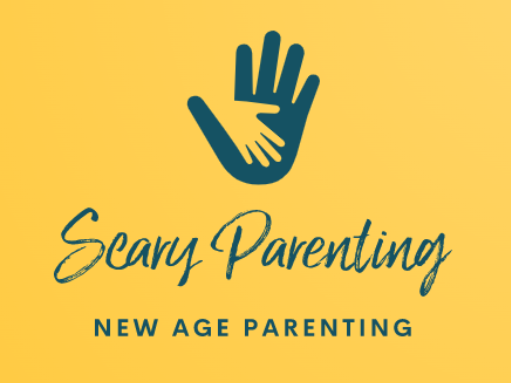
God has given us “the parents” sacred duty of nurturing and raising our offspring. We have blissfully and merrily accepted his reward, but sometimes it is typical for us to feel feeble and perplexed with what is the right way of parenting.
Remember, most of the beautiful things in this cosmos are not perfect, and so is the job of parenting. There isn’t a rule book for parenting that guarantees a happy or successful child, but there are few parenting traits that have a positive influence on a child’s psychology and makes them a sorted person in life.
Read on to know more about a few parenting traits or characteristics of good parenting:
1. They don’t yell at their kids:
Have you noticed how horrible you feel when someone yells at you,
or you yell at someone? So, why are you doing the same and raising your voice at your kids? If you are yelling at your kids to clean the room, they may follow your command for that moment. However, it doesn’t change their mindset that cleaning the room is a consistent chore.
What we can do:
- Communication is the key. “Try to talk with them and not at them.”
- Don’t be in an authoritative mode just because you are their parent. Request them to stop and not command. Consider their perspective as well.
- Find a constructive way to deal with tough situations. Ask them very gently if they need something, or what is bothering them. Try to work out a solution together.
- It’s never too late to control your anger and rectify your mistakes. Even you have been yelling for ages, now is the best time to stop.
2. They are not too preachy:
Nobody wants to listen to long and boring lectures. Just because of this frequent moral policing by some parents, children often tend to be pushed away from them during adolescence.
They never pour their heart out or confide in you anytime.
What we can do:
- Be a friend to them with a good sense of humor. They just want to get heard without judgment.
- Don’t preach to them the benefits of learning, instead share with them about your latest read or any documentaries you have been watching lately to gather knowledge. Your children will always follow your example and not your advice.
- This method of communication is less preachy, and they will eventually internalize the message.
3. They don’t splurge on their children
Children must respect the food, clothes, or toys they get.
They will never learn to value them if there is always an alternative to their demand.
According to many studies, too many toys can hamper their creativity and decrease their attention spans.

What we can do:
- Don’t deprive them but don’t spend to the extent that they are overwhelmed with choices.
- One of the significant characteristics of good parenting is to splurge on a few occasions, so they look forward to it.
- Declutter your home and donate the toys that are no longer developmentally appropriate for your kids.
- Your one day is always more valuable than that one extra toy.
4. They are happy with the little achievements of their children:
Parents usually compare their kids with peers, and as a result, want them to accomplish more and more to give a single validation. Rather than accepting who their child is, some parents want to teach them to be a person they admire.
This attitude by several parents makes their children feel worse and depressed when they have not been able to meet expectations.
What we can do:
- Value their efforts more and focus less on the result.
- Rather than discussing their grades, shift your focus towards the process. Ask questions such as “What challenges did you face?” or “Which part was difficult?”
- Share your own experiences and challenges, and how did you overcome those. This approach will remind them that the process matters more than the outcome or the grade.
- A principal characteristic of good parenting is to emphasize that grades are not the end goal of children’s education, but learning is.
5. They admit their faults:
- All humans make mistakes. Many times over, parent’s decisions backfire, and children have to bear the brunt.
- The difference arises between good and average parenting characteristics on how do they respond when it turns out they were wrong.
- Not admitting your mistake hurts children, and they lose respect for you with time.
What we can do:
- Communicate, apologize, and make them understand the reason behind the error on your part.
- This approach will not only help you with the self-tormenting guilt, but children will also realize the importance of apologizing rather than concealing the truth.
6. They avoid helicopter parenting
We want to safeguard our kids from any harm or trouble at all costs but being a hyper-vigilant guardian can do more harm than good.
Children may have low self-esteem and they may not be able to cope up with any rejections or failure later in their life.
What we can do:
- Take a step back and let your kids deal with their struggles independently. For instance, let your toddlers play on their own sometimes. Similarly, don’t choose their circle of friends or tie their shoelaces when they reach kindergarten. In their high school, don’t discuss their poor grades in a routine class test with their teacher. Some parents hover over their children even when they get jobs, married, or have children of their own. That is entirely wrong.
7. They respect each other
Couples fighting over trivial or significant issues is a very likely scenario in most households. The problem arises when the strategy to resolve this conflict is hostile.
Parents physically abusing each other or indulging in name-calling can have a nasty impact on a child’s psychology. They may not feel safe with you, develop behavioral problems with their peers or trauma can even last a lifetime.
What we can do:
- We cannot avoid conflicts, but physical abuse or calling each other names is a strict no in the presence of your children.
- Don’t avoid each other in case of a quarrel, preferably resolve issues with dialogue and understanding each other’s viewpoint.
- Children can even become a better version of themselves if you can work out the disagreement with kindness in front of them.
8. They trust their children
Snooping or monitoring of children is not of the characteristics of good parenting. It generally breaks kids’ trust, and they fear to share what is going on due to overreaction.
Mutual trust is nearly impossible with this attitude.

What we can do:
- Let them make their own decisions, your support is required, but don’t decide on their behalf. They will make mistakes and learn from them.
- Understand that times are evolving, and there is a big generation gap between you and your children. They are exposed to a whole lot of content than you were, but fear-based parenting is not the solution. Engage and communicate with them when you think something is not going on well with them.
9. Good parents cook healthy and yummy food for their children.
Parents generally feed junk food due to convenience, lack of meal planning, or sometimes submissiveness to their children.
Children who eat poorly can have decreased energy and focus along with obesity.
Long term repercussions are even more worrying. They are at an increased risk of cardiovascular disease, depression, type 2 diabetes, and high blood pressure, just to name a few.
What we can do:
- We need to stock up healthy food items in our inventory.
- They will ultimately choose what’s available in cupboards. Children can’t be on food-strike for long.
- Don’t deprive them of their favorites, but buy it once in a while. Frequency always matters when it comes to the impact of junk food on someone’s health.
Also Read:Homemade food for 1-year-old
10. They are disciplined
Parents are often reluctant to discipline their children due to the tantrums thrown by them, lack of time and energy, or simply to avoid a conflict.
An undisciplined child is an unpleasant company and often finds it difficult to make friends. They have very few coping mechanisms and generally grow up to be a resentful person.

What we can do:
- Discipline is no fun for children, and they often feel strangled by it.
- Later on, however, they will surely reap the benefits of discipline, and it will help to create an atmosphere of peace around them.
- One of the key characteristics of good parenting is to understand that discipline does not mean that you have to punish the child. Just set some clear and consistent rules they need to follow and what could be the consequences if they deviate from those.
There will be in numerous instances where you won’t be or don’t want to abide by the above characteristics of good parenting.
“Don’t blame yourself if you deviate from the path sometimes. Parenthood is a challenging journey, after all.”
Isha Sharma
You may also like:
Non-Toxic Home Cleaner:Bio-Enzymes






9 replies on “Characteristics of good parenting”
[…] Characteristics of good parenting […]
[…] Characteristics of good parenting […]
[…] ← Homemade food for 1-year-old → Characteristics of good parenting […]
[…] More than 5 years of my life were nothing less than a fairytale. I was married to my partner in crime but then reality stepped in. The reality to achieve the most crucial goal of married life, welcoming parenthood. […]
[…] Happy Parenting! […]
[…] Characteristics of good parenting […]
[…] Characteristics of good parenting […]
[…] Characteristics of good parenting […]
[…] Characteristics of good parenting […]